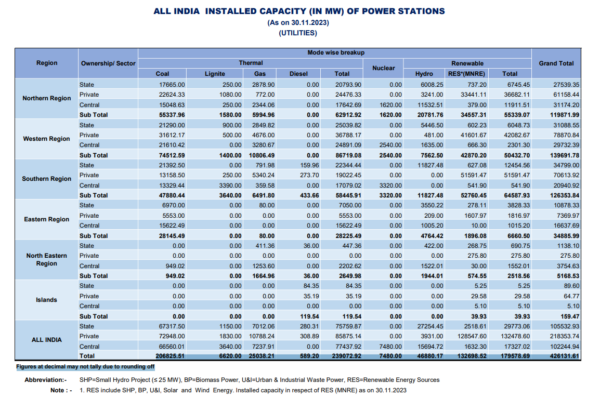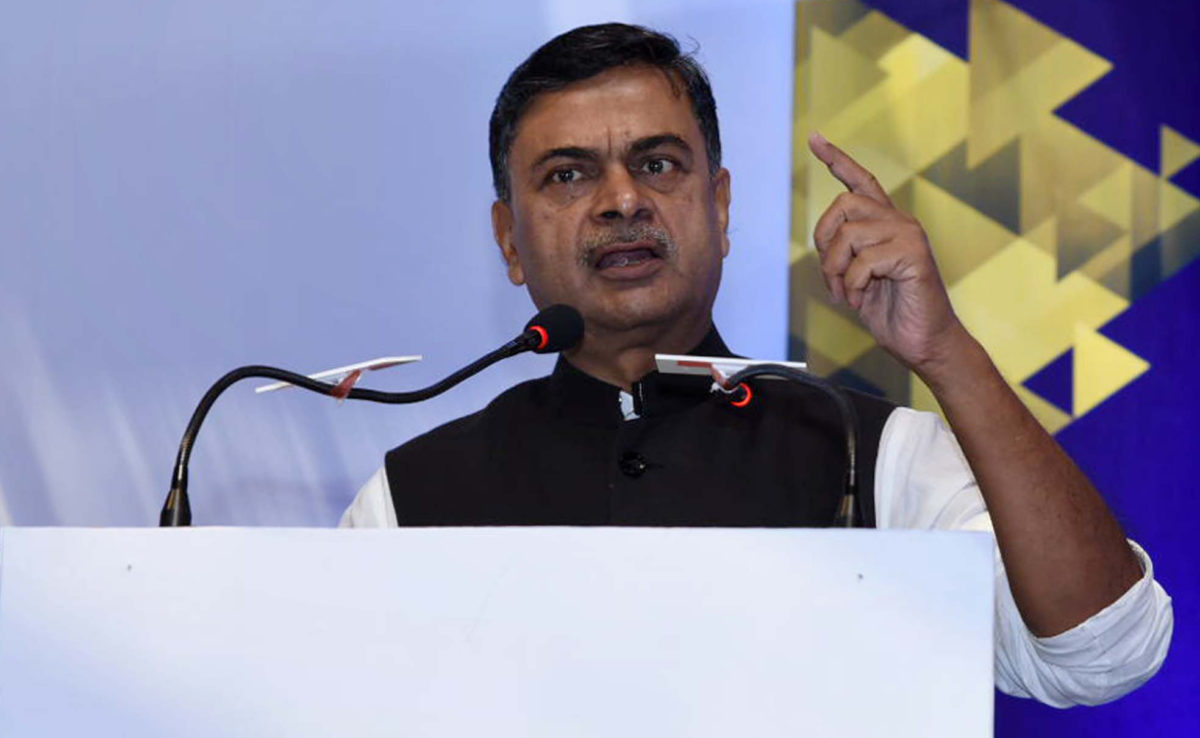India cannot achieve energy security by renewable energy sources alone as solar power is not available round the clock and wind energy is intermittent. To meet its requirements, the nation needs to add capacity that can provide round-the-clock power, said RK Singh, union minister for power and new & renewable energy, recently.
The minister shared that large-scale integration of variable and intermittent renewable energy resources with the grid requires power sources that can act as base load and balance the grid for grid stability. Hence, dependence on coal-based generation is likely to continue till cost-effective energy storage solutions are available.
Power demand in India is increasing rapidly with the rapid growth of the economy. The peak demand has increased to 243,000 MW during the current financial year (till Nov. 2023), from 1,35,000 MW in FY 2013-14. The projected peak demand as per the 20th Electric Power Survey will be 277,200 MW in FY 2026-27 and 3,66,400 MW in FY 2031-32.
During the period 2014-15, India added 97,501.2 MW of conventional power capacity and 96,282.9 MW of renewable energy capacity, transforming from a power deficit to a power surplus nation in the past decade. The nation’s electricity generation capacity has increased by 70% from 248,554 MW in March 2014 to 425,536 MW in October 2023.

As per the National Electricity Plan, the installed power capacity requirement for the year 2031-32 is likely to be 9,00,422 MW, comprising 2,84,467 MW of fossil-based capacity (coal and lignite 2,59,643 MW, gas 24,824 MW) and 6,15,955 MW of non-fossil-based capacity (nuclear 19,680 MW, large hydro 62,178 MW, solar 364,566 MW, wind 121,895 MW, small hydro 5450 MW, biomass 15,500 MW, pumped storage projects 26,686 MW) along with battery energy storage system capacity of 47,244 MW/236,220 MWh).
To ensure an uninterrupted power supply for the nation’s growth, a cumulative 132,148.5 MW of power generation capacity is under construction and the total anticipated power capacity addition by 2031-32 is likely to be 517,403 MW. Details of the anticipated capacity addition between 2023-32 are given below:
- 27,180 MW of thermal capacity is under construction and the total anticipated thermal capacity addition by 2031-32 is likely to be 87,910 MW
- 18,033.5 MW of hydro capacity (including stalled projects) is under construction and the total anticipated hydro capacity addition by 2031-32 is likely to be 42,014 MW.
- 8,000 MW of nuclear capacity is under construction and the total anticipated nuclear capacity addition by 2031-32 is likely to be 12,200 MW.
- 78,935 MW of renewable energy capacity is under construction and the anticipated RE capacity addition by 2031-32 will be 375,279 MW.
This content is protected by copyright and may not be reused. If you want to cooperate with us and would like to reuse some of our content, please contact: editors@pv-magazine.com.









1 comment
By submitting this form you agree to pv magazine using your data for the purposes of publishing your comment.
Your personal data will only be disclosed or otherwise transmitted to third parties for the purposes of spam filtering or if this is necessary for technical maintenance of the website. Any other transfer to third parties will not take place unless this is justified on the basis of applicable data protection regulations or if pv magazine is legally obliged to do so.
You may revoke this consent at any time with effect for the future, in which case your personal data will be deleted immediately. Otherwise, your data will be deleted if pv magazine has processed your request or the purpose of data storage is fulfilled.
Further information on data privacy can be found in our Data Protection Policy.